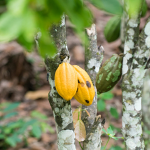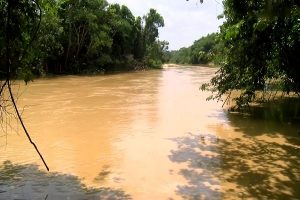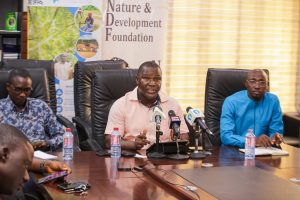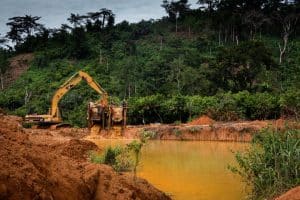The University Teachers Association of Ghana (UTAG) has reiterated its...
Read MorePlantations
Influencing the development of plantation forest.
Overview
Plantation forestry accounts for only 7% of total global forests cover but responsible for about 40% of industrial round wood supply (Ghana Forest Plantation Strategy:2016-2040). According to WWF Living Forest Report 2014, the world needs to establish additional 4-5 million hectares of plantation per year over the next 40 years in order to stop the deforestation of valuable and threatened natural forests. Plantation forestry has increasingly become a significant part of the politics of Ghana where successive governments have committed huge sums of money to reforestation as a means of generating employments and ensuring food security. However, it has been realized that only well-managed and appropriately located plantations can play important roles in healthy, diverse and multi-functional forest landscapes that are compatible both with biodiversity conservation and human needs. In addition, only appropriately established plantation industry can contribute to economic growth and poverty reduction.
Why it matters
With the increase in demand for wood tied to human development, Natural Forests will not be able to supply all such demands. Already, according to Science, the planet is warmed by 1oC – and we are suffering the consequences. Staying within 1.5oC will require actions at unprecedented pace, space and scale. A big part of the solution is removing significant quantities of carbon dioxide (CO2) from the atmosphere; this where plating trees comes in.
What NDF is doing
NDF is closely collaborating with the New Generation Plantations (NGP) project which was created by WWF to develop and promote the adoption of improved practices in plantation forestry. The NGP project is a dialogue with major plantation companies and governments that aims to catalyse significant momentum towards better plantation management and land-use decision making. In the context of collaboration with the NGP, NDF is involved in providing support to one of the biggest plantation establishment in Ghana in ensuring social engagement and maintenance of ecosystem integrity. The APSD and NDF plantation interaction, is committed to develop a mosaic plantation system where forest plantation is integrated, contribute to sustainable livelihood, biodiversity conservation, infrastructure development, Green-House Gas (GHG) emissions reduction, economic growth and poverty reduction. To the NDF, the aim is to make the plantations of APSD a good example for current and future plantations development in Ghana. The nature and development foundation (NDF) seeks to be involved and assist all plantation developer who wish for well managed plantation that are ecologically and socially harmonized. This form of engagement could be done under the scope of the WWF New Generation Plantation project.
NDF and Partners; Urgent Call to Protect Ghana’s Forest Reserves!
We are challenging the legality of the Environmental Protection (Mining...
Read MoreBan galamsey totally now – Christian Council to government
The Christian Council of Ghana has joined the growing calls...
Read MoreGalamsey: Enough of the lip service, act now – Coalition against illegal mining to govt
The Media Coalition Against Illegal Mining has called on the...
Read More




